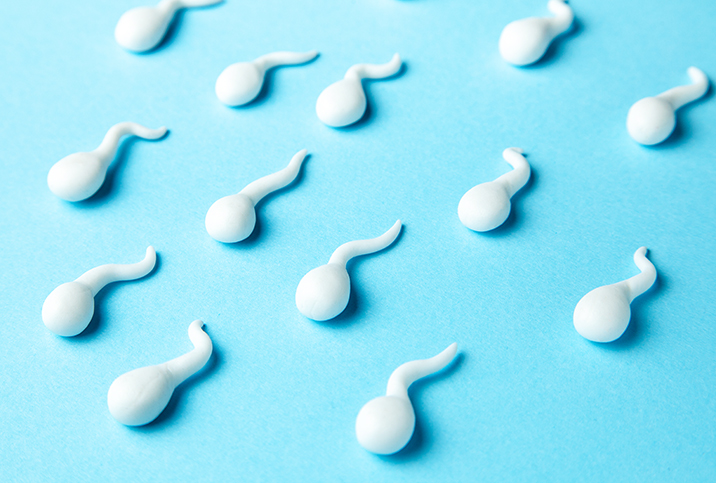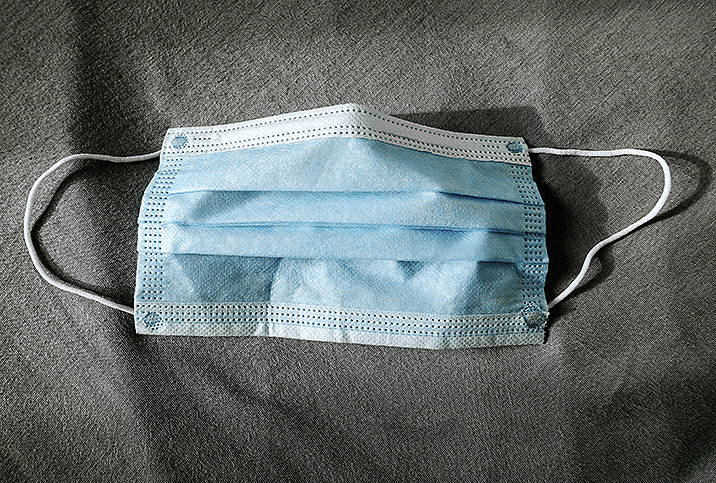Mask Up, Keep It Up: ED More Likely for Men With COVID-19

A new erectile dysfunction study may cause young spring breakers who partied maskless in defiance of COVID-19 recommendations to sing a different tune this summer.
A study published in March 2021 in the journal Andrology indicates men who have recovered from a COVID-19 infection experienced a rate of risk for erectile dysfunction that is nearly six times higher than for men who successfully avoided the virus.
Age doesn't appear to be a factor, as even young men recovering from the virus were affected by ED at a similar rate to older men.
Researchers also noted a cyclical relationship could be present because men with ED were more susceptible to COVID-19 infection.
The study
The lead researcher was Emmanuele A. Jannini, M.D., a University of Rome professor of endocrinology and medical sexology. Jannini and his team acknowledged other comorbidities and risk factors for ED such as diabetes, obesity, smoking and age. But after taking these and other factors into account, their study suggested men who recovered from COVID-19 had an odds ratio of developing ED of 5.66. An odds ratio represents the odds that an outcome will occur with a particular exposure, compared to the odds of the outcome occurring without that exposure.
The study looked at 100 sexually active Italian men, 25 of whom were COVID-19-positive and 75 men who were not. The prevalence of ED in the two groups was measured using a survey called the Sexual Health Inventory for Men (SHIM), a commonly used tool to gauge and diagnose the severity of men's erectile dysfunction.
Researchers found the prevalence of ED to be much higher in the positive group than in the negative group, at 28 percent to 9.33 percent. Jannini and his team said their logistic regression models indicated men's COVID-19 status had a significant effect independent of other potential ED factors, such as age, body mass index (BMI) or psychological status.
ED and other health factors
While the study's authors are quick to acknowledge a number of correlations between ED and other health problems, Jannini believes further research will establish circulatory issues as the primary link.
Recent independent research backs him up on this, indicating the connection between cardiovascular issues and ED is more direct than previously thought. Early-onset ED is now believed to be a strong predictor of future heart disease. Clinicians are increasingly urged to screen young men who present with ED for cardiovascular issues as a matter of course.
A 2009 Mayo Clinic study focusing on men between ages 40 and 49 found those who experienced ED at that age were twice as likely to develop heart disease. One theory suggests that as coronary artery disease develops, it constricts blood flow to smaller arteries and blood vessels, impeding the flow to the penis.
Jannini wrote that the COVID-19 connection to ED is specifically tied to a related arterial issue called endothelial disease. It's a type of coronary artery disease marked by damage to the lining of the arteries. The study's hypothesis fits with what we already know about how poor circulation affects ED. Endothelial disease results in restricted blood flow just as coronary blockage can, so it makes sense to surmise COVID-19-related circulation issues of this kind could affect erectile function.
Conclusions
There's plenty of overlap in what makes men susceptible to COVID-19, heart disease and ED. It's impossible to look at the results of Jannini's study without acknowledging correlations in risk factors, such as age, obesity, diabetes, smoking and a sedentary lifestyle.
However, it's indisputable that reduced blood flow is not good for erectile function. While Jannini's study is a small one, the potential link between COVID-19, reduced blood flow and erectile issues is one men shouldn't ignore when considering how seriously to take precautions during the pandemic.


















